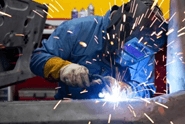Market Data

July 29, 2018
PMA Optimism Falters on Tariff Worries
Written by Sandy Williams
Tariff worries have caused optimism among metalforming companies to wane, says the latest survey of the Precision Metalforming Association. PMA members are expecting orders to decrease in the next three months and fewer expect an improvement in economic activity.
“The data confirms that the optimism expressed by our members at the beginning of the year because of tax reform and other positive economic indicators have been reversed because of the Section 232 steel tariffs,” said PMA President Roy Hardy. “Only 24 percent of participants in this month’s survey forecast improved economic activity in the next three months, compared to 97 percent in PMA’s February Business Conditions Report. Significant steel price hikes and problems obtaining the steel needed are negatively impacting small and medium-sized manufacturers throughout the country and causing great concern in the metalforming industry. As I have stated, tariffs are taxes, and for many of our members these tariffs have already wiped out any gains from tax cuts and regulatory reform.”
Average daily shipping levels dipped in July for metalforming companies. Forty-one percent of participants, compared to 54 percent in June, reported that shipping levels are above the levels of three months ago, while 41 percent reported that levels are the same (up from 32 percent the previous month) and 18 percent reported a decrease in shipping levels (compared to 14 percent in June).
More companies reported workforce on short time or layoff in June. Six percent of participating PMA companies reported changes in workforce levels in July, compared to 4 percent in June and 5 percent from a year ago.
The June PMA report was based on a sampling of 108 metalforming companies in the U.S. and Canada.







